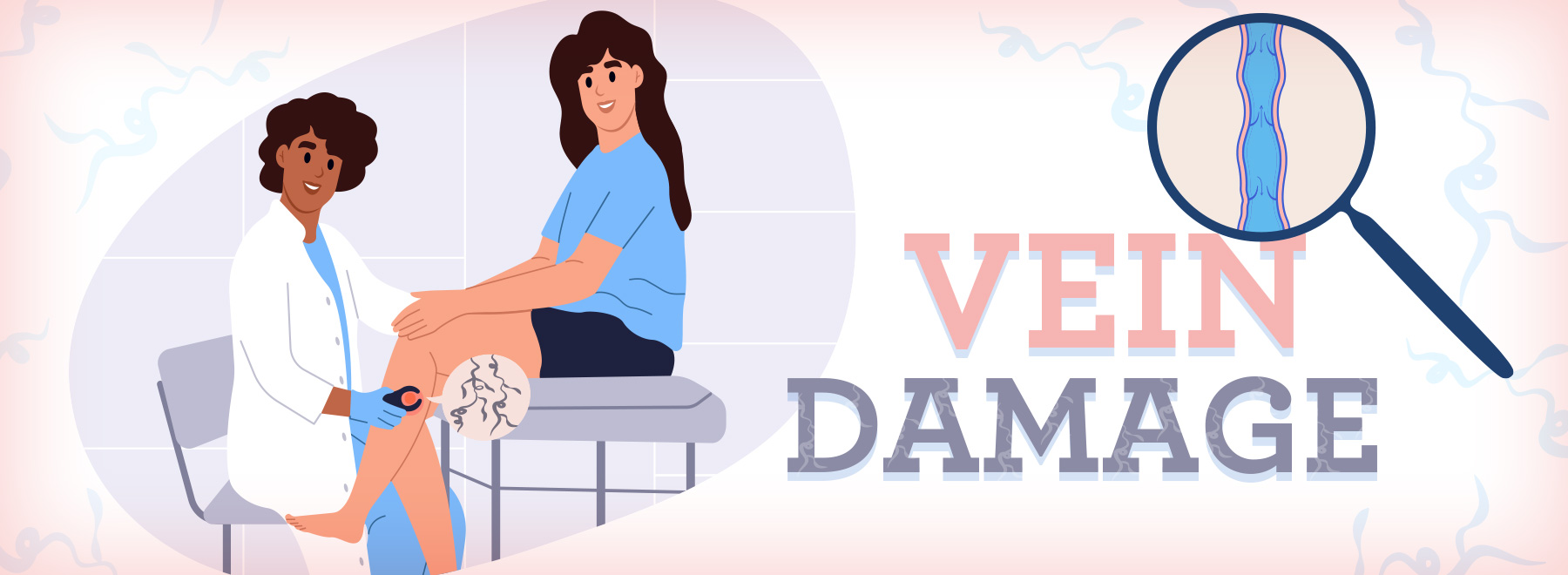Chronic venous insufficiency: When to seek treatment
Anyone – including the president of the United States – can have chronic venous insufficiency, or CVI, as they age. Signs of CVI such as leg swelling and pain can mean it’s time to seek medical treatment, experts at the University of Mississippi Medical Center say.

"If symptoms of CVI such as leg swelling and pain are affecting your daily life, it’s a good idea to see your primary care physician and discuss the possibility of a vascular surgery referral,” said Dr. Mrinal Shukla, associate professor of vascular surgery. “Chronic venous insufficiency is something we see often, but it is often something we treat without surgery.”
Chronic venous insufficiency is the result of damage to leg veins. Normally, valves in leg veins keep blood flowing back to the heart, but since they are damaged, blood pools in the legs, causing swelling and ulcers. CVI often causes mild symptoms at first but can lead to more severe swelling and serious complications.
Without treatment, CVI increases the pressure in leg veins so much that the smallest blood vessels, capillaries, burst.
"Over the years, the valves can wear out,” Shukla said. “Valves help blood return to the heart, metabolizing toxins, and when they’re not working properly, the reflux can cause a burning pain.”
Burst capillaries can cause tissue damage and open sores on the skin which can become infected. "This can put a patient at risk for limb loss,” Shukla said.
The risk of CVI goes up with age, usually affecting people 50 and older. About 5% of adults have chronic venous insufficiency.
The most common cause of chronic venous insufficiency is deep vein thrombosis, a blood clot that damages a vein. Those with a history of deep vein thrombosis have a higher risk of developing CVI.
Symptoms of CVI to watch for include:
- Tired, achy or tingly legs
- Cramping in legs at night
- Reddish-brown discoloration in legs
- Swelling (edema) in lower legs and ankles, especially after standing or later in the day.
- Flaking or itchy skin on legs and feet
- Varicose veins
- Open sores near ankles
CVI is classified in stages from 0, when the only symptoms are achy legs, to stage 6, when skin has unhealed ulcers. CVI is diagnosed at stage 3, when swelling is the main symptom.
Diagnosed through physical examination and ultrasound, CVI treatment can be treated through wearing compression stockings, leg elevation and adopting healthy habits such as walking more, losing weight, eating a heart-healthy diet and quitting smoking.
“Patients’ legs are measured for compression stockings to get the best fit,” Shukla said, pointing out that the vascular surgery clinic at UMMC prescribes compression stockings based on those measurements. “If a compression stocking is too loose, it’s ineffective, but if it is too tight, patient discomfort hinders compliance.”
More severe cases of CVI may require surgery. Blood thinners may be prescribed to reduce the risk of blood clots.
The vascular surgery clinic, located at the Pavilion at UMMC, “offers comprehensive care in one location,” he said.
“Many of our patients travel to appointments from out of town, so we work to provide the imaging and diagnostic care they need in one visit,” Magen Holliday, RN care coordinator, said.
Shukla praised the vascular surgery team, which includes three vascular surgeons, three nurse practitioners, two nurses, two administrative assistants and multiple laboratory technicians, in addition to many more support staff, that serve hospital patients as well as those in the clinic.
“We have a fantastic, patient-focused team,” he said. “Our job is to serve the people of Mississippi, and that’s what drives our team.”
To make an appointment for vascular care, visit umc.edu/Healthcare/Make-An-Appointment or call (601) 984-2680, and choose option 1.
The above article appears in CONSULT, UMMC’s monthly e-newsletter sharing news about cutting-edge clinical and health science education advances and innovative biomedical research at the Medical Center and giving you tips and suggestions on how you and the people you love can live a healthier life. Click here and enter your email address to receive CONSULT free of charge. You may cancel at any time.



